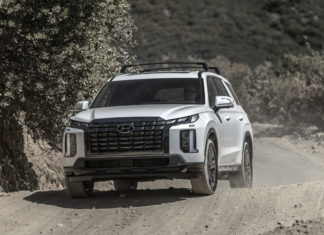
If you’re wondering if your vehicle is eligible for EV tax credits, check out this video!
In some cases, automakers (like GM and Tesla – among others) built over 200,000 EVs and are no longer eligible for EV tax credits.
The EV Tax Credits
Many hydrogen fuel cell, EVs and PHEVs (plug-in hybrids) purchased since 2010 have been eligible for a federal tax credit up to $7,500. This is based on the capacity of the battery – as the prime motivator for the vehicle. In other words, it has to be a plug-in electric vehicle, along with a battery with a minimum capacity of 4 kWh. It has to be capable of being charged from an external source too.
The car is only eligible for the federal tax credit once, and the credit is non-transferable; It goes to the original buyer. In the case of leasing, the dealership (or finance company/bank) gets the tax credit. There is no EV tax credit for buying a used electric car, no matter what.
The policy that allows you to claim up to $7,500 in credit against the federal income taxes you owe in the year in which you buy the car. Simply put, it reduces your tax liability. If you’re eligible for a refund, you’ll get whatever the amount of your credit on top of that.
State EV tax credits – and used EV tax credits
I’m using the state of Colorado as an example, because many states have different tax credits for various battery electric vehicles. Colorado calles their tax credit, the “Innovative Motor Vehicle Tax Credit.” Some vehicles are eligible for up to $2,500. It was up to as high as $5,000. The program works in a similar way as the federal initiative, but on a state level.
You can go to the State of Colorado’s website (here) to learn more.
Here’s more from DriveElectricColorado.com
- $2,500 credit received with state income tax refund for full battery electric vehicle (BEV) – may be applied at purchase with many electric vehicle manufacturers
- $1,500 for 2-year minimum leases
- $1,500 for a plug-in hybrid
- Unused tax credit can be rolled forward to future years
- Colorado residents are able to claim an additional state tax credit of $2,500 when they buy an electric vehicle. Some dealers offer this at point of sale. The credits decrease every few years from $2,500 during January 2021 – 2023 to $2,000 from 2023-2026. For leases: $1,500 between 2021 to 2026. For tax years January 1, 2010 – January 1, 2022, the credits are refundable. The credit is first applied against the income tax liability of the person who purchases or leases the qualifying motor vehicle. If the credit exceeds the tax due, the excess credit will be refunded.
There’s more…
- (In addition) In some cases, used electric cars can claim (up to) 18% of the cost of the car year on year on a residual value basis.
A lot of automakers and dealerships make it sound like you’ll instantly get $7,500 to $10,000 dollars in your pocket, the minute you buy a new EV. Once again, it depends on your tax bracket, the battery and more.
Check out this video for a list of all the eligible for EV tax credits!
… except the Ford E-Transit, which we totally missed.
























